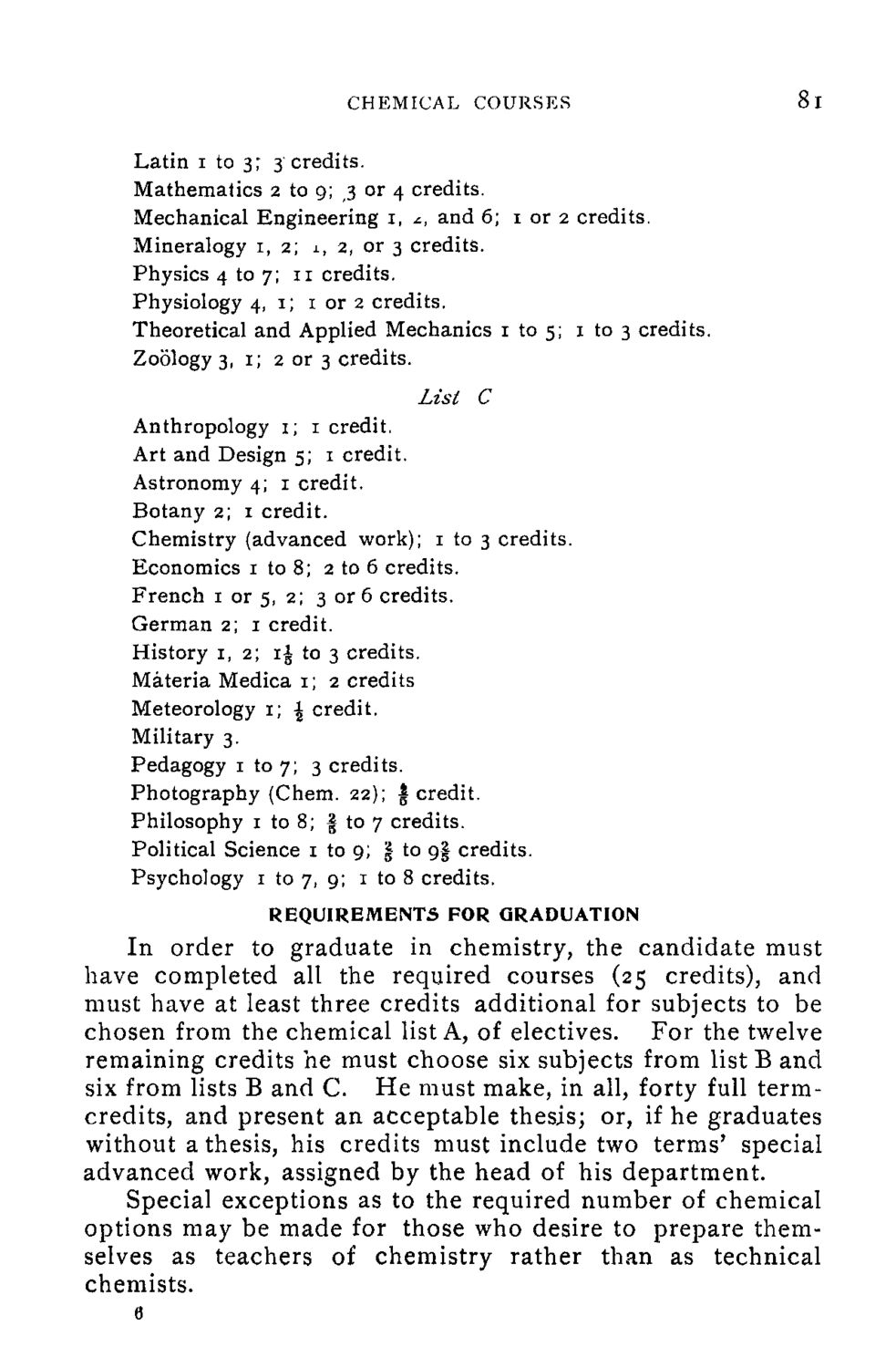| |
| |
Caption: Course Catalog - 1896-1897
This is a reduced-resolution page image for fast online browsing.

EXTRACTED TEXT FROM PAGE:
CHEMICAL COURSES Latin i to 3; 3 credits. Mathematics 2 to 9; 3 or 4 credits. Mechanical Engineering 1, *, and 6; 1 or 2 credits. Mineralogy 1, 2; 1, 2, or 3 credits. Physics 4 to 7; 11 credits. Physiology 4, 1; 1 or 2 credits. Theoretical and Applied Mechanics 1 to 5; 1 to 3 credits. Zoology 3, 1; 2 or 3 credits. List C Anthropology 1; 1 credit. Art and Design 5; 1 credit. Astronomy 4; 1 credit. Botany 2; 1 credit. Chemistry (advanced work); 1 to 3 credits. Economics 1 to 8; 2 to 6 credits. French 1 or 5, 2; 3 or 6 credits. German 2; 1 credit. History 1,2; i\ to 3 credits. Materia Medica 1; 2 credits Meteorology 1; \ credit. Military 3. Pedagogy 1 to 7; 3 credits. Photography (Chem. 22); § credit. Philosophy 1 to 8; § to 7 credits. Political Science 1 to 9; g to g | credits. Psychology 1 to 7, 9; 1 to 8 credits. REQUIREMENTS FOR GRADUATION 8I In order to graduate in chemistry, the candidate must have completed all the required courses (25 credits), and must have at least three credits additional for subjects to be chosen from the chemical list A, of electives. For the twelve remaining credits he must choose six subjects from list B and six from lists B and C. He must make, in all, forty full termcredits, and present an acceptable thesis; or, if he graduates without a thesis, his credits must include two terms' special advanced work, assigned by the head of his department. Special exceptions as to the required number of chemical options may be made for those who desire to prepare themselves as teachers of chemistry rather than as technical chemists. e
| |